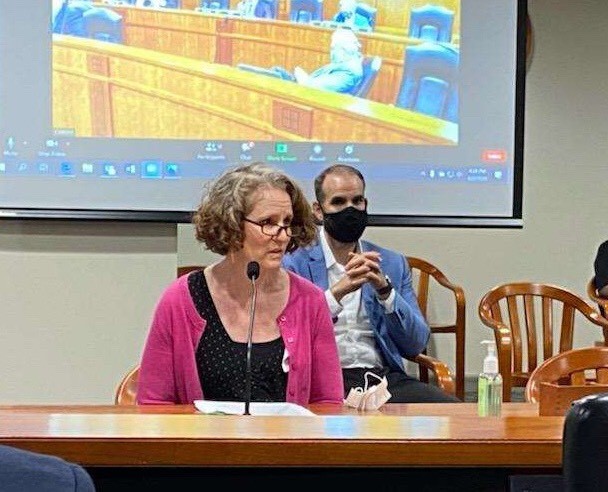Executive orders closing businesses are unnecessary, vague, arbitrary, and capricious.
On Monday, June 1, Governor Whitmer lifted the “Stay At Home Order” and allowed more businesses to reopen on a limited basis (see related story). The next day, small business owners from around the state told a Joint Select Committee on the COVID-19 Pandemic that most of her orders closing businesses were unnecessary, vague, arbitrary, and capricious.
NFIB small business members shared their challenges and frustrations with the Joint Select Committee that was created by the Michigan legislature to answer “very serious questions” on the governor’s handling of the outbreak.
Nancy Marr from Prime Housing Group said that their business could have kept employees doing work that allowed distancing and safety but the “essential – non-essential” approach of the orders did not allow any flexibility. “We could have kept our team on site and had them paint hallways even though painting was not considered essential,” said Marr. “It could have been done safely and allowing us to do that type of work would have allowed us to keep our employees off unemployment. There are likely so many businesses like ours that could have kept their staff off unemployment doing safe work.“

Nancy Marr testifies in front of the Joint Select Committee on the COVID-19 Pandemic.
Steve Zurcher, owner of St. George Glass & Window located in the Upper Peninsula, told the Committee that although his business was considered “essential” and has been allowed to operate, he has been a witness to the economic carnage caused by the governor’s executive orders.
“Beginning in March, our governor used an executive order to create two unequal classes of businesses and citizens as Michiganders were deemed either “essential” or “non-essential”, said Zurcher. “With the stroke of an executive’s pen, I became an essential class of business and citizenry. You might think I would be grateful and celebrate my good fortune, but from day one, and still to this moment, I believe it is unfair, demeaning and divisive to use government power, taxpayer money and contortions to create and enforce laws in such an unequal and arbitrary manner.”
NFIB State Director Charlie Owens, and member Nevin Groce, told the Senate Economic and Small Business Development Committee two weeks before that Michigan’s small businesses are dying and need to be allowed to safely re-open immediately.
While the governor has finally made moves to reopen our state economy after continued pressure from NFIB, other business groups, citizens, and the legislature, for many small businesses it will be too little too late. The economic damage could take years to repair and moves by the governor and legislative democrats seek to make many of the mandates on employers and expanded Unemployment Insurance benefits permanent. With the budget deficits to come, such proposals will result in higher taxes on those small businesses that managed to survive in order to pay for these new programs and spending.
